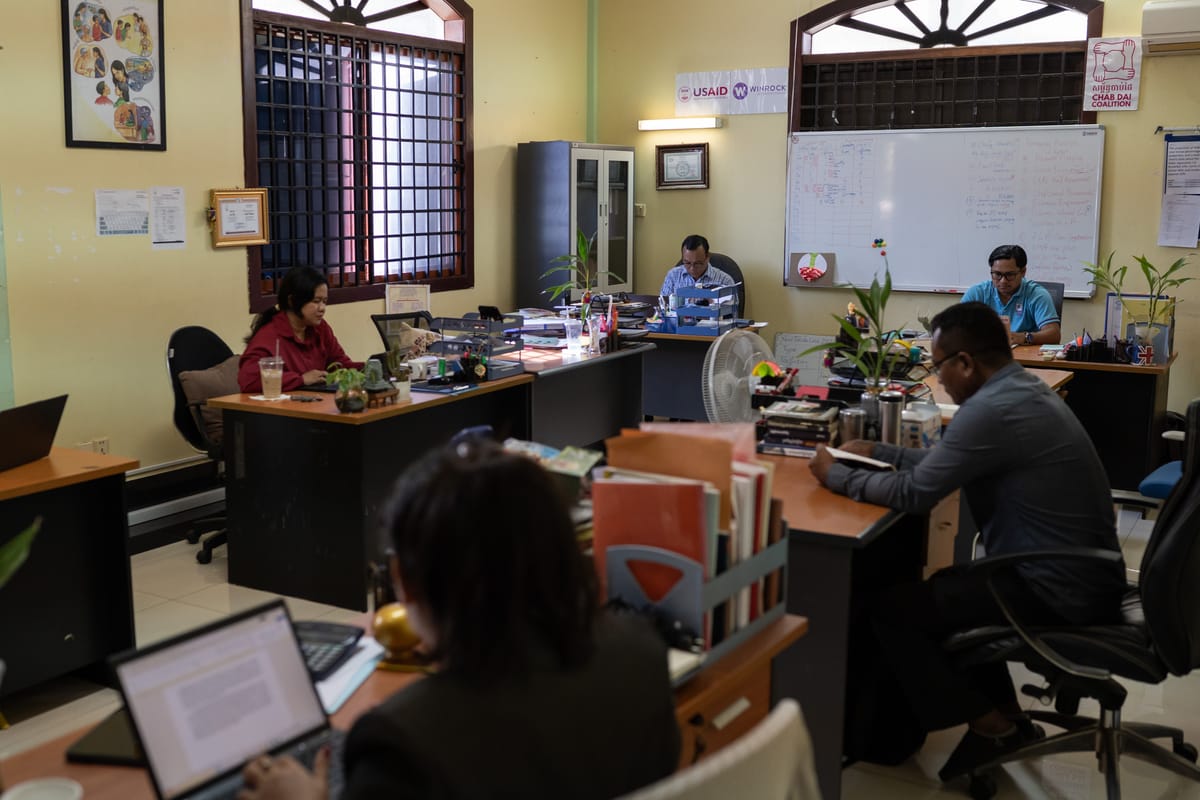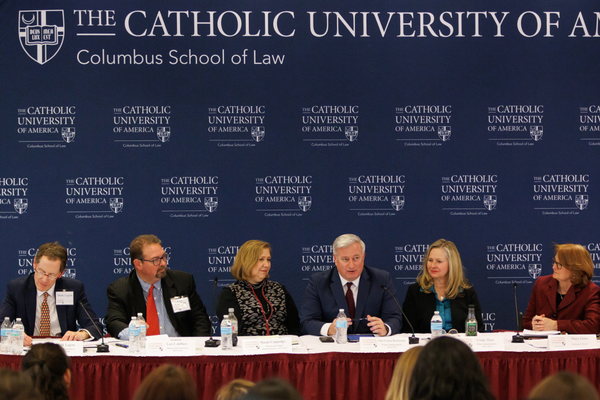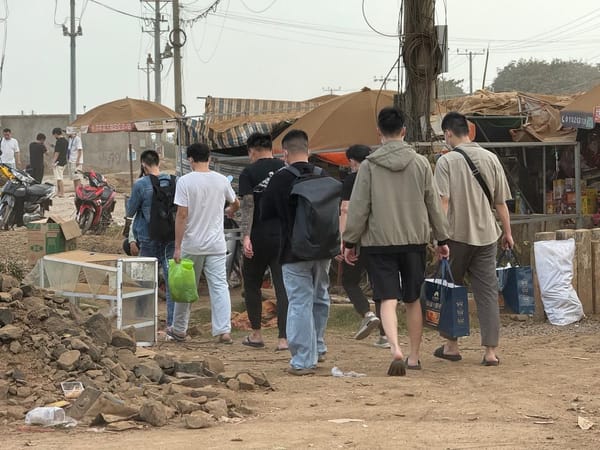Chab Dai publishes case studies on its shift to survivor-led advocacy in Cambodia
A Cambodian NGO explains how it switched to a survivor-centered model, Australia appoints its first Anti-Slavery Commissioner, and a survivor network celebrates its launch in Kenya.

Cambodian NGO Chab Dai, with support from Cambodia CTIP and Freedom Collaborative, has produced two new case studies detailing its shift towards a survivor-centered model that emphasizes empowerment, community support, and leadership development, helping survivors tell their stories on their own terms and advocate for their own needs. While this approach is not currently widespread in Cambodia, the team was inspired by survivor engagement programs in other countries, and in particular by the U.S. State Department’s 2022 Trafficking in Persons (TIP) report, which urged responders to treat survivors as subject experts on human trafficking, include them on advisory boards, and seek their views to help inform policy decisions.
Chab Dai’s team recognized that the traditional model of trafficking recovery services missed opportunities for survivors to use their lived experience to inform and improve services and policies – but then faced the challenge of creating a sustainable framework that would respect each survivor’s healing process while building a community of empowered individuals.
Its response was to launch a Survivor Engagement project within its Community-Based Client Care (CBCC) program, giving survivors the training and platform they need to confidently share their experiences and insights with peers, stakeholders, and policymakers. The Survivor Engagement pathway comprises three stages, each designed to nurture and amplify survivors’ voices in meaningful ways:
The Survivor Care Forum is a biannual gathering that brings together survivors and their families for two days of healing-focused workshops, shared learning, and community-building. Many survivors lack a support network, and the forum offers the opportunity to meet people with similar experiences. The two-day event consists of a workshop for sharing and recovery as well as a visit to a local tourism destination, such as Angkor Archaeological Park in Siem Reap province.
The Survivor Learning Group is designed for those ready to take on a more public advocacy role, and offers a full day of specialized training. The curriculum is shaped by survivors’ own needs, covering topics from trafficking prevention to public speaking, computer skills, and English language proficiency. Chab Dai carefully assesses survivors’ readiness for this stage, encouraging participation only when survivors feel enthusiastic and prepared to take on this advocacy work.
Graduates of the Learning Group can move into the Survivor Leadership Group, in which they participate in forums and policy dialogue, taking active roles in shaping the national response to trafficking. Chab Dai trainers help participants prepare by running mock panels and Q&A sessions, building their confidence, and honing their expertise for broader audiences.
Chab Dai’s Survivor Engagement team have had to adapt to a style of working that differs from that of other programs due to its responsiveness to survivors’ requests, and the requirement to adapt to their unique and sometimes complex needs. Counselors have to travel frequently, and they also have to maintain communication, even when survivors are distant or lose signal. Furthermore, while previous counseling experience is invaluable, survivor engagement is a new space for the group and practitioners say they sometimes experience stress from being outside their comfort zone.
However, the group is committed to embracing this new perspective and channeling survivors’ expertise, knowing it will take time to adjust and see results. Its ultimate goal is for survivors to build a self-sustaining network that offers peer support and advocacy, independent of the organization. Through ongoing dialogue and collaboration, they also hope to see the Cambodian Government formalize survivor-led consultation in its anti-trafficking initiatives, ensuring that survivor voices are embedded in policy.
The approach is already having an impact: in a landmark achievement, members of the Survivor Leadership Group recently contributed directly to government policy, providing insights at the National Committee for Counter Trafficking (NCCT) forum. They offered critical feedback on outreach methods and shared recommendations on trauma-sensitive interviewing practices that could help reduce re-traumatization in survivors’ interactions with officials. This indicates the programs are leading to a shift in Cambodia’s mindset about the role of survivors in anti-trafficking efforts – a role in which they are increasingly seen as experts, capable of informing and shaping national policy.
Here’s a round-up of other noteworthy news and initiatives:
Chris Evans, a former Labor senator and director at Walk Free, has been appointed Australia’s first Anti-Slavery Commissioner, in a move described by the group as a critical step towards strengthening protections against modern slavery. The country imports more than AU$25 billion worth of goods that may be at risk of being produced with forced labour each year, Walk Free says, underlining the pressing need for stronger legislative and enforcement measures.
Globalworks has published a report on the working conditions of warehouse workers and office staff at Shein and Temu in China. Its research shows how a data-driven labour regime forces warehouse workers to compete against the clock and other workers, pushing many to their physical and mental limits and obscuring wage and working time records, making it impossible to detect unfair treatment or seek remedy through labour arbitration.
The U.S. Office to Monitor and Combat Trafficking in Persons (TIP Office) has released three fact sheets on survivor engagement, with input from experts with lived experience, covering key insights and promising practices for emerging survivor leaders, NGOs, and governments. The resources provide valuable guidance for anyone dedicated to survivor-centered approaches.
Community-based organization Survivors Network Kenya (SNK) recently celebrated its launch, marking a significant milestone in survivor-led advocacy against human trafficking in the country. Supported by Free the Slaves, SNK is the first survivor network officially recognized by the Kenyan Government, and will empower survivors of human trafficking to lead in policy engagement and systemic change across Kenya.
U.S. regulatory agencies will host a series of three webinars, starting today, to discuss the ramifications of the Uyghur Forced Labor Prevention Act on the seafood sector. The webinars come a year after reports by the Outlaw Ocean Project revealed a litany of labour abuses in China’s seafood industry, including evidence of forced labour, which led to U.S. companies severing ties with Chinese seafood suppliers and increased scrutiny from U.S. lawmakers and regulators.
Freedom Collaborative is seeking donations for the creation and implementation of a secure intelligence-sharing platform – similar to a whistleblower mechanism – that allows survivors of forced criminality to safely share their experiences and information. The platform will be designed to strategically channel this information in ways that maximize safety, impact, and the potential for actionable outcomes.
And we are hosting an event in Washington, DC, on 20 November, to discuss the complexities of human trafficking for online scamming and organized fraud in Southeast Asia and other regions. Featuring insights from our working group of CSOs and grassroots responders, we will provide updates on current developments and challenges, and share actionable strategies to tackle this issue head-on. Please register to join!




